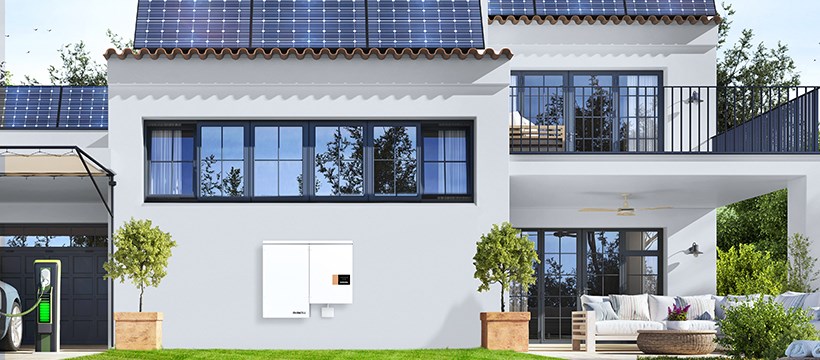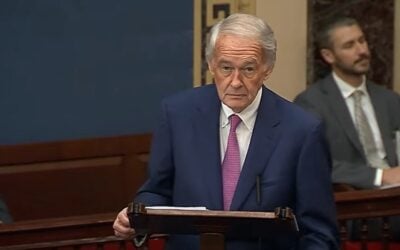
Over the past few weeks, we’ve been discussing various aspects of the Inflation Reduction Act and the positive impact its expected to have on energy storage deployment in the US.
That’s true for battery storage at grid-scale and for the commercial and industrial (C&I) segment too, both areas we report on frequently here at Energy-Storage.news.
Enjoy 12 months of exclusive analysis
- Regular insight and analysis of the industry’s biggest developments
- In-depth interviews with the industry’s leading figures
- Annual digital subscription to the PV Tech Power journal
- Discounts on Solar Media’s portfolio of events, in-person and virtual
Meanwhile, it’s also true at residential scale, where fears of power outages and environmental consciousness have already led to an uptick in sales of battery storage and growing attachment rates for batteries for customers of rooftop solar PV, both new and existing.
Further boosts are expected for the residential storage sector from changes to electricity market rules and regulations such as FERC Order 2222, which directs that transmission operators must allow distributed energy resources (DERs) – like battery storage – to participate in wholesale markets.
Some big names have announced steps forward in their residential battery offerings, perhaps with a view to presenting them to the industry at next month’s RE+ 2022 trade show in Anaheim, California, which incorporates the Solar Power International and Energy Storage International events.
Sunrun-backed Lunar Energy emerges from stealth mode
Lunar Energy is an electrification business aiming to build “affordable hardware and software products for the residential sector” to enable renewable energy uptake and the elimination of fossil fuels in the home.
Its first offering will be a home battery system. Details of that have not been released yet, but Lunar Energy did say yesterday that it has acquired UK smart energy and battery storage software company Moixa.
Moixa’s GridShare software manages battery storage systems and their interaction with home energy usage and production. For instance, it can be fed data on a customer’s energy usage patterns and plan charging accordingly, while it can also consider weather forecasting and other data.
While Moixa is noted as a pioneer of battery storage in the UK, having performed some of the earliest frequency response pilots using home batteries aggregated into a virtual power plant (VPP), it has perhaps made the biggest impact in Japan.
The GridShare software is onboarded to 330MWh (about 35,000 units) of battery storage from Japanese conglomerate ITOCHU. The software can manage other types of DER assets too. In the UK, Moixa’s biggest project has been working with courier company UPS to electrify its fleet of vehicles.
Lunar Energy has been quietly developing its business and gathering investment in stealth mode since its founding in August 2020. What’s most likely to get the company noticed is that two of the main investors contributing to US$300 million in raised funds to date are major US residential solar PV and storage installer Sunrun and South Korea’s SK Group.
Also among investors are ITOCHU and another investor in Moixa, Japanese automaker Honda.
“More than ever, we need rapid adoption of renewable energy solutions across all sectors to mitigate climate change. Lunar Energy was founded to build affordable hardware and software products for the residential sector to help homeowners generate, store and consume 100% clean energy and remove the usage of fossil fuels from every home,” Lunar Energy CEO and former Tesla Energy exec Kunal Girotra said.
Offering a so-called “next-generation home battery system” to the market is “the first step towards our mission to electrify all homes and connect communities to form clean, resilient virtual power plants—freeing us from power outages, rising energy costs and harmful emissions,” the CEO said.
“Kunal, and the engineering team at Lunar Energy, are building at scale home electrification products that will dramatically accelerate the switch from fossil fuels to renewables,” Lunar Energy chair and Sunrun co-founder and co-executive chair Lynne Jurich said.
Baywa r.e. to distribute Duracell brand home battery storage
Germany-headquartered renewable energy group Baywa r.e. will distribute battery storage systems for the home carrying the iconic Duracell brand.
Baywa r.e. said last week that it is adding the Duracell Power Center suite of residential storage tech products to its line card for solar installation partners in the US. It has signed a deal for distribution with Power Center, an authorised Duracell licensee.
The systems are AC-coupled and scalable in units of 5kW to 10kW output and from 14kWh to 42kWh capacity and can be installed with new PV systems or retrofitted to existing systems. Designed to also offer backup power, they come with automatic islanding capability in the event of an outage, can load shift to take advantage of time-of-use electricity rates and can be monitored and controlled 24/7 through a mobile app.
Baywa r.e. is also distributing Duracell Home Ecosystem, an integrated solar-plus-storage solution which comes with microinverters for solar PV and EV charging products. Home Ecosystem storage units are equipped with lithium iron phosphate (LFP) batteries and come with a 10-year warranty.
“The home storage segment has struggled with à la carte solutions, as you typically have equipment from different manufacturers that must work together and communicate in order to provide energy management services in the home,” Baywa r.e. Solar Systems VP of product strategy David Dunlap said, adding that Power Center, “brings everything together in one system with an iconic brand name that customers trust”.
Panasonic launches all-system warranty
Japanese consumer electronics company Panasonic is offering a full warranty package that covers solar PV and energy storage equipment from the maker.
Announced earlier this week by Panasonic Corporation of North America, the warranty is being offered to customers that purchase Panasonic solar PV modules as well as the company’s Evervolt 2.0 energy storage system.
Called Evervolt Allguard All System Warranty, it offers 25 years protection on the solar modules, 25 years on the racking system, coupled with 10 year warranty cover for the Evervolt 2.0 and 10 year warranty cover for inverters.
Evervolt 2.0 can be either AC-coupled or DC-coupled, with 7.6kW off-grid output, 9.6kW on-grid output and 17.5kWh capacity. It will be available from January 2023.






